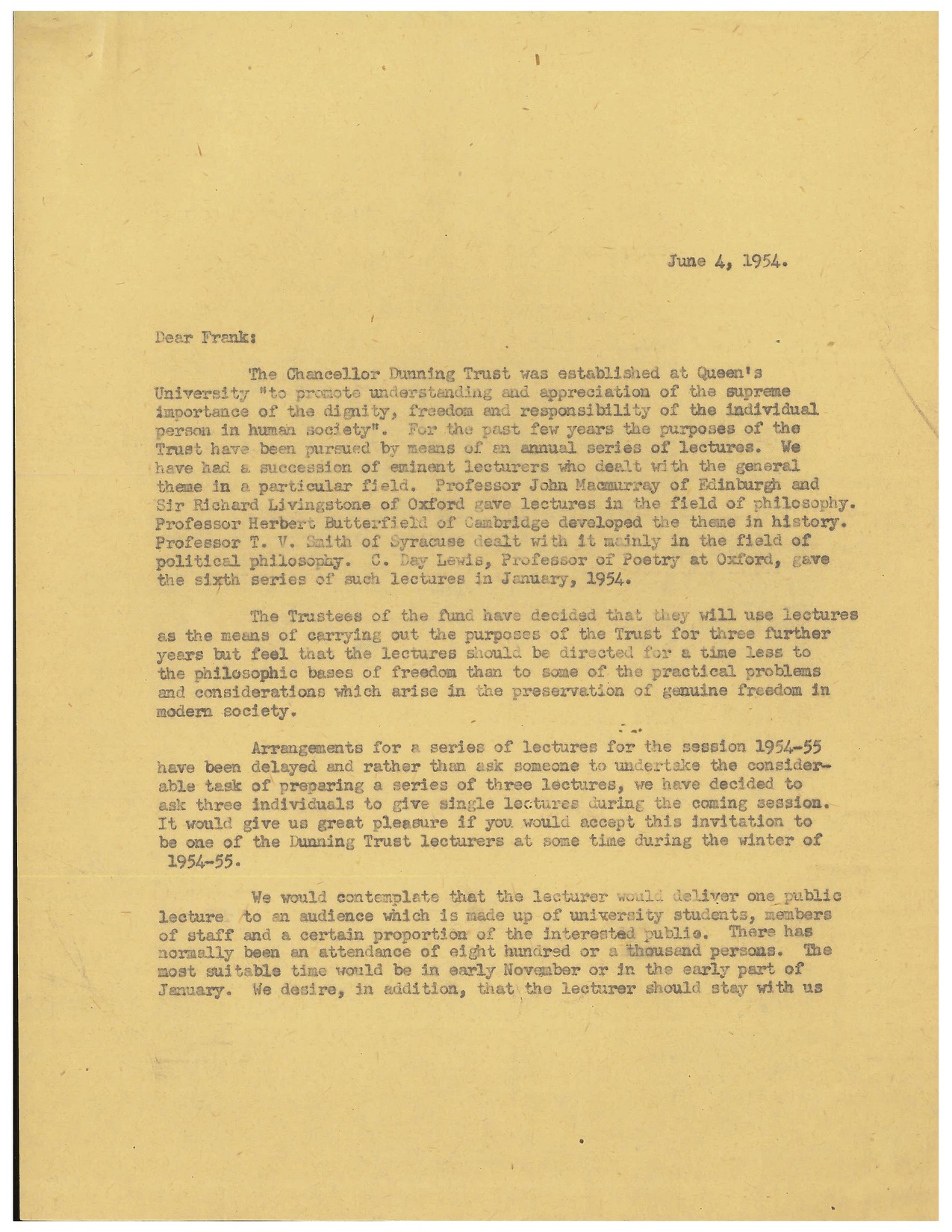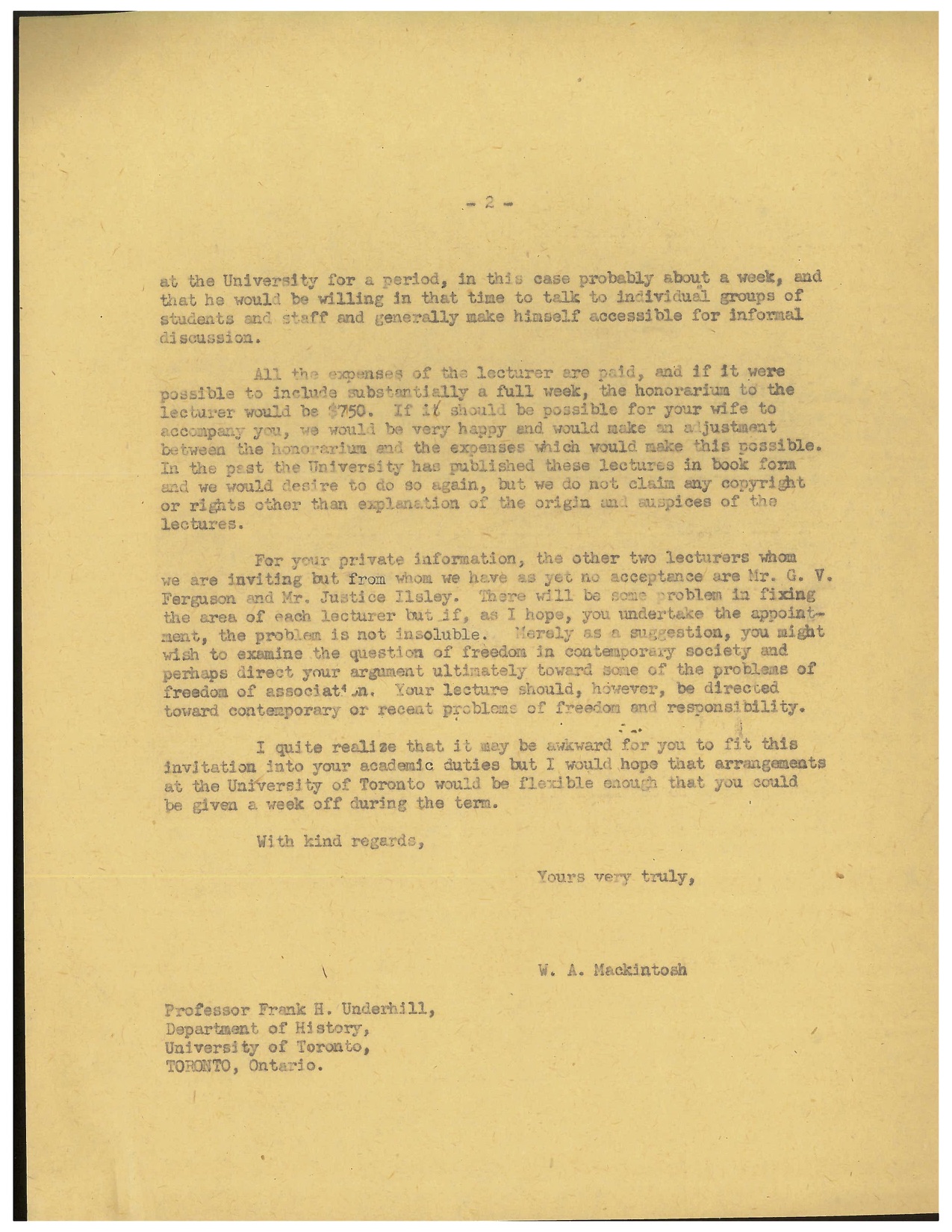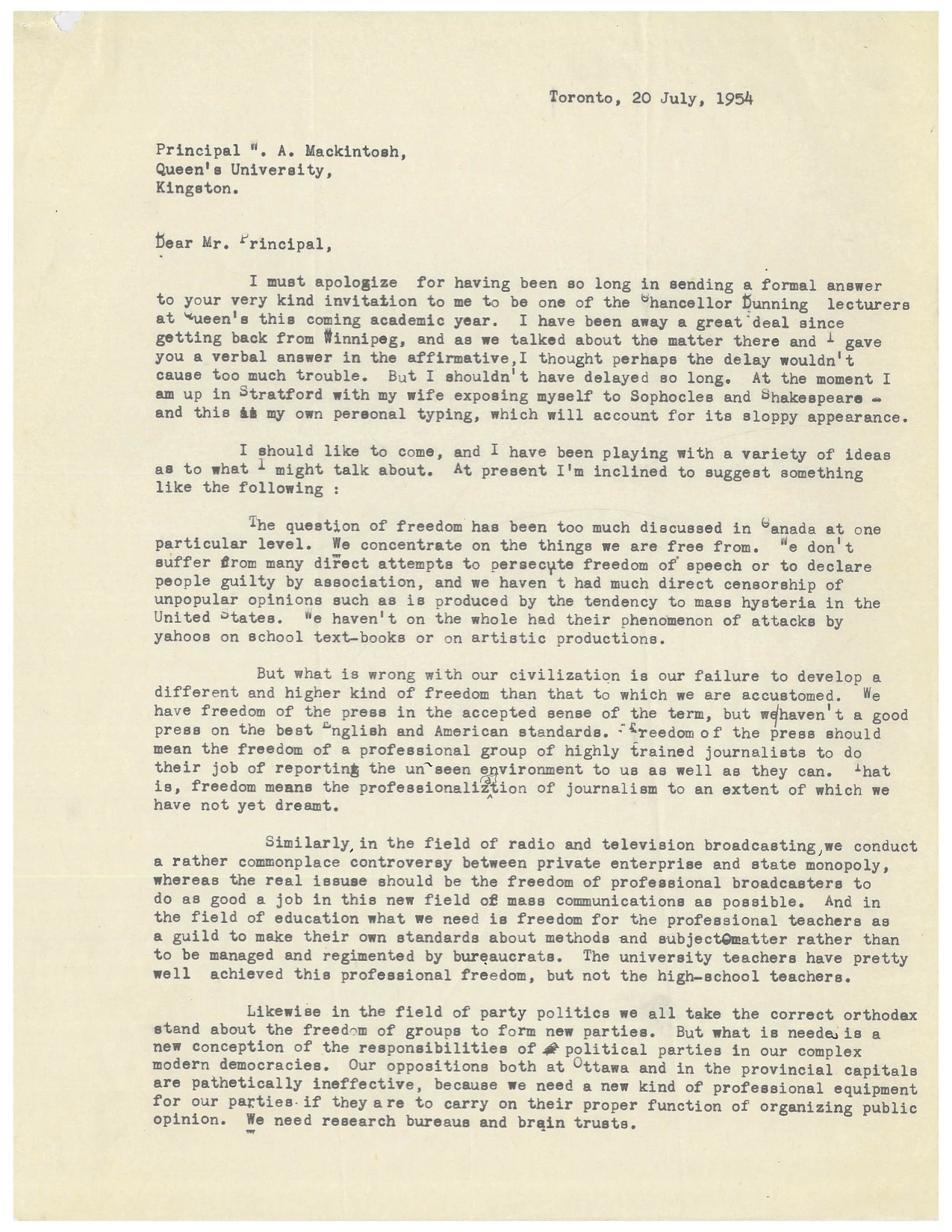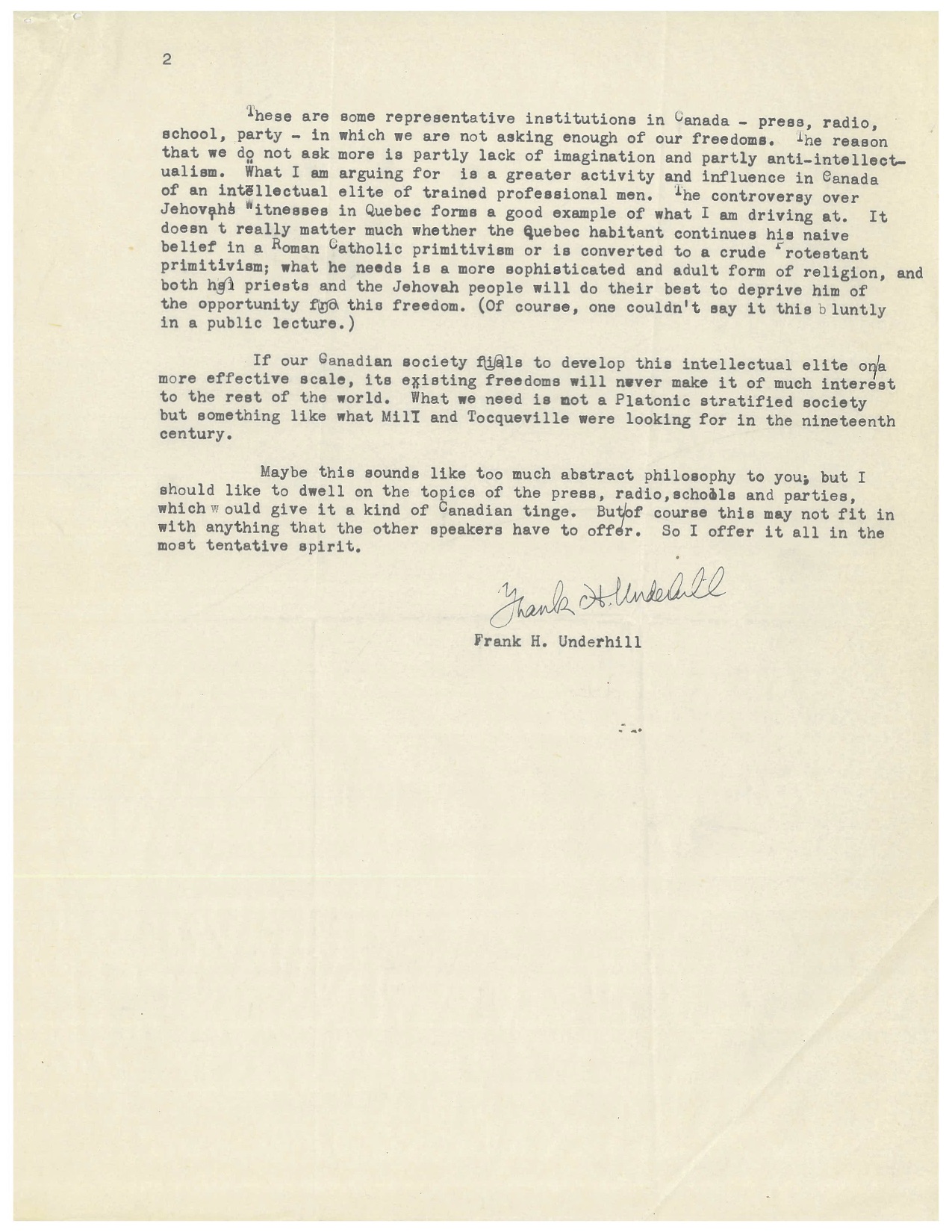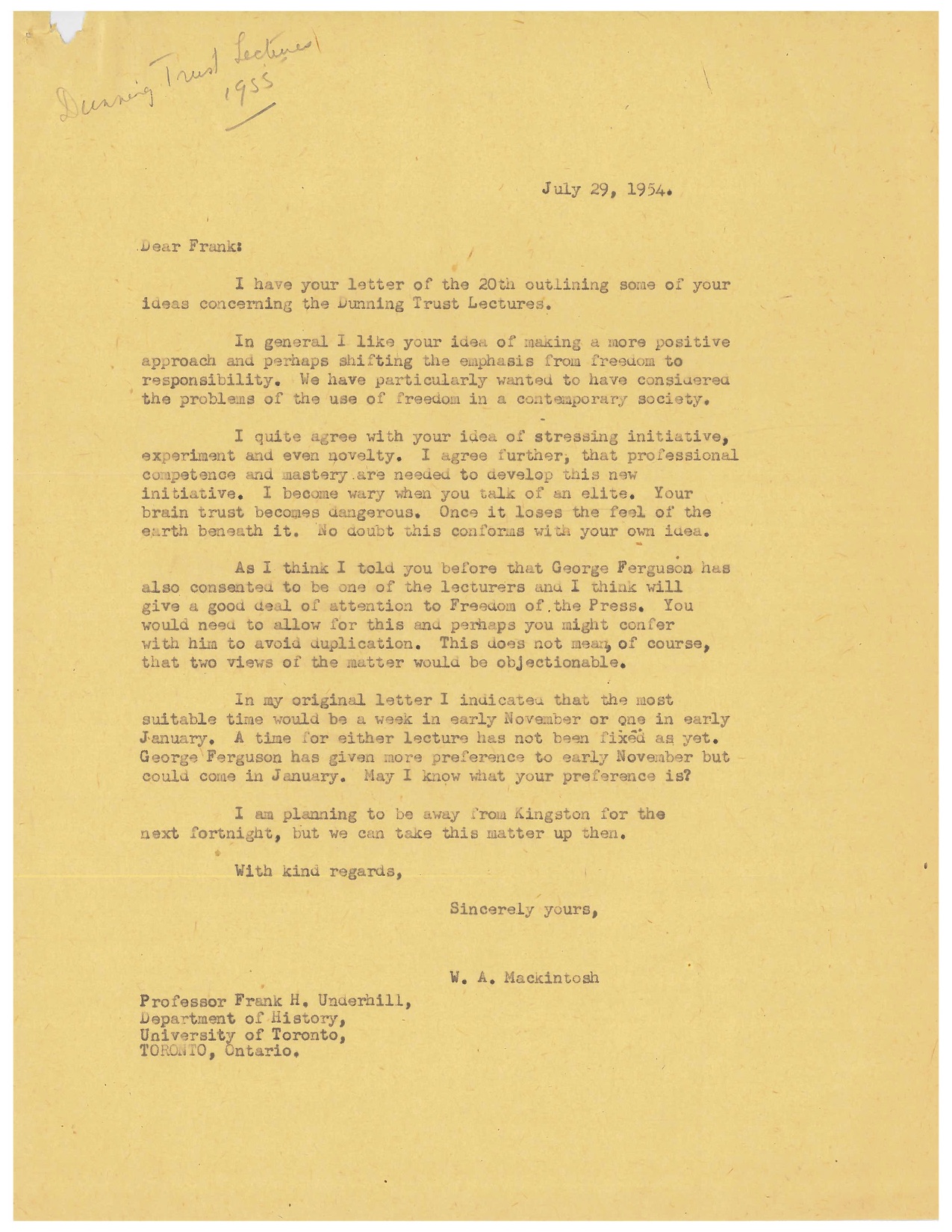Frank H. Underhill was a writer and radio commentator, as well as a professor of history at the University of Toronto. He was a noted Canadian social democrat and public intellectual. Underhill was the first individual to be the Dunning Trust lecturer twice, once in 1954-55 and once in 1966-67. Underhill studied at the University of Toronto and Oxford University, after which he taught at the University of Saskatchewan during the 1920s “progressive” era. During the First World War, he served as an officer in the British Army. In 1933, Underhill helped to write the Cooperative Commonwealth Federation’s founding document, the Regina Manifesto. From 1927 he worked at Canadian Forum, publishing a column of political commentary. He taught at the University of Toronto from 1927 to 1955, where his activism pushed against the bounds of academic freedom. In 1967, Underhill was made Officer of the Order of Canada.
In his lecture, Frank H. Underhill examined the state of Canadian liberal democracy. He argued that a healthy liberal democracy required political parties which educate the voters in government. He called for Canadian political parties to make greater efforts to stay in the public eye and contribute to the political education of the public. Underhill stressed the need for decreased voter apathy, claiming that proportional representation is a much-needed step to improve true democracy in politics in the face of a 20-year Liberal monopoly. To do this, he explained, parties need to educate and intrigue voters, shifting away from mere economic problems to other aspects of concern including cultural policy. The increasing gap between the government and the governed threatened to expose Canada to the twentieth-century political problems Underhill believed it had largely avoided. He also advocated for a fully professional civil service. The universities, he said, should lead the way in revitalizing Canadian party politics, encouraging the parties to embrace change. An editorial in the Queen’s Journal responded positively to Underhill’s lecture, suggesting that the much-admired American political system offered a useful model for an informed electorate.
Underhill spent a week at the university in January, meeting with staff, students, and alumnae, and each afternoon held informal consultations with students. At a meeting of alumnae at Ban Right, he gave a lecture entitled “Dreams and Realities in World Politics from 1945 to 1955,” in which he laid out his interpretation of Communist, Roman Catholic, British, and American dreams. He also spoke to the International Relations Club on “Canada and the United States in World Politics,” telling students that Canada needed to recognize that the US had replaced Britain as the leading power.
Listen to an excerpt of his lecture or read the full transcript below.
Download the Frank Underhill 1955 lecture (PDF)
Correspondence in advance of Underhill’s lecture.
